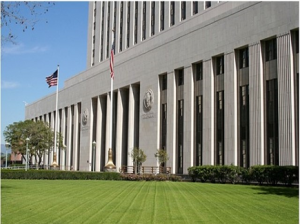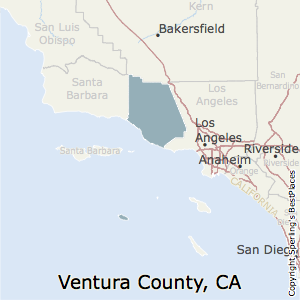LOS ANGELES

Three men were arrested this week for illegally charging Mexican nationals thousands of dollars to get H-2A work visas and for expenses while in the U.S., according to officials.
Immigrants were illegally charged for transportation, room, and board after they were given promises that the U.S. Department of Labor and U.S. Citizenship and Immigration Services had paid and they would not be charged for these expenses, according to authorities.
In addition, the indictment alleges that the farmworkers were made to pay fees to obtain their visas, which is prohibited under the H-2A visa program.
Here is how the H-2A visa program works, according to officials.
- The program allows employers to hire foreign, short-term agricultural workers when the employer cannot find suitable workers in the United States.
- H-2A labor contractors provide foreign workers to farms and generally are responsible for recruiting, transporting and housing the foreign workers.
- Before the foreign workers can receive visas, several government agencies must certify the need for foreign workers and determine that foreign workers would not adversely impact workers already in the United States.
Federal agents arrested the following defendants:
- Jorge Vasquez, 58, of Fontana, the owner of H-2A Placement Services, a farm labor recruiting company based in Rancho Cucamonga
- Melquiades Jacinto Lara, 62, of Santa Paula, the owner of J&D Harvesting, which contracted workers to farms in Ventura County
- Ricardo Mendoza Oseguera, 39, of Santa Paula, the owner of Discoteca Mi Pueblito, a music and convenience store in Santa Paula, which redeemed vouchers given to workers for J&D Harvesting after deducting fees from the workers’ pay.

Investigators have reviewed USCIS records that indicate that Vasquez and Jacinto have filed petitions for more than 350 farmworkers since 2012.
In addition, the H-2A program has rules designed to protect foreign workers from exploitation, including prohibitions from charging the foreign workers for government approvals, equipment needed to perform their jobs, transportation to and from the fields, and costs associated with housing.
As part of the scheme alleged in the indictment, Vasquez travelled to Mexico to recruit farmworkers, who were charged as much as $3,000 to obtain their H-2A visas.
In addition to illegally charging the foreign workers, Vasquez also allegedly made false promises to the workers about how long the visas would be valid and failed to tell the workers that they would be charged for housing, food and transportation.
Vasquez is also alleged to have promised an H-2A visa to an undercover agent with the Labor Department’s Office of Inspector General who Vasquez believed was an undocumented individual working in the construction industry in Las Vegas and had no interest in working in the agricultural industry, in exchange for $3,500 to $4,000.
In relation to the costs being borne by the foreign workers, Vasquez and Jacinto allegedly filed documents with federal authorities that contained false statements in connection with their application for visas for 75 workers to harvest lemons, avocados, and oranges.
The indictment charges Vasquez and Jacinto with conspiracy, three counts of mail fraud, one count of visa fraud, and one count of fraud in foreign labor contracting for allegedly telling foreign workers in 2013 that the H-2A visas would be valid for three years,when they knew the visas would expire later that year.
Jacinto and Mendoza are charged with one count of operating an unlicensed money transmitting business.
Mendoza’s business served as a check-cashing and wire transfer service where the farmworkers would redeem vouchers or checks paid to them by Jacinto and send money internationally.
The defendants are presumed innocent unless proven guilty.


